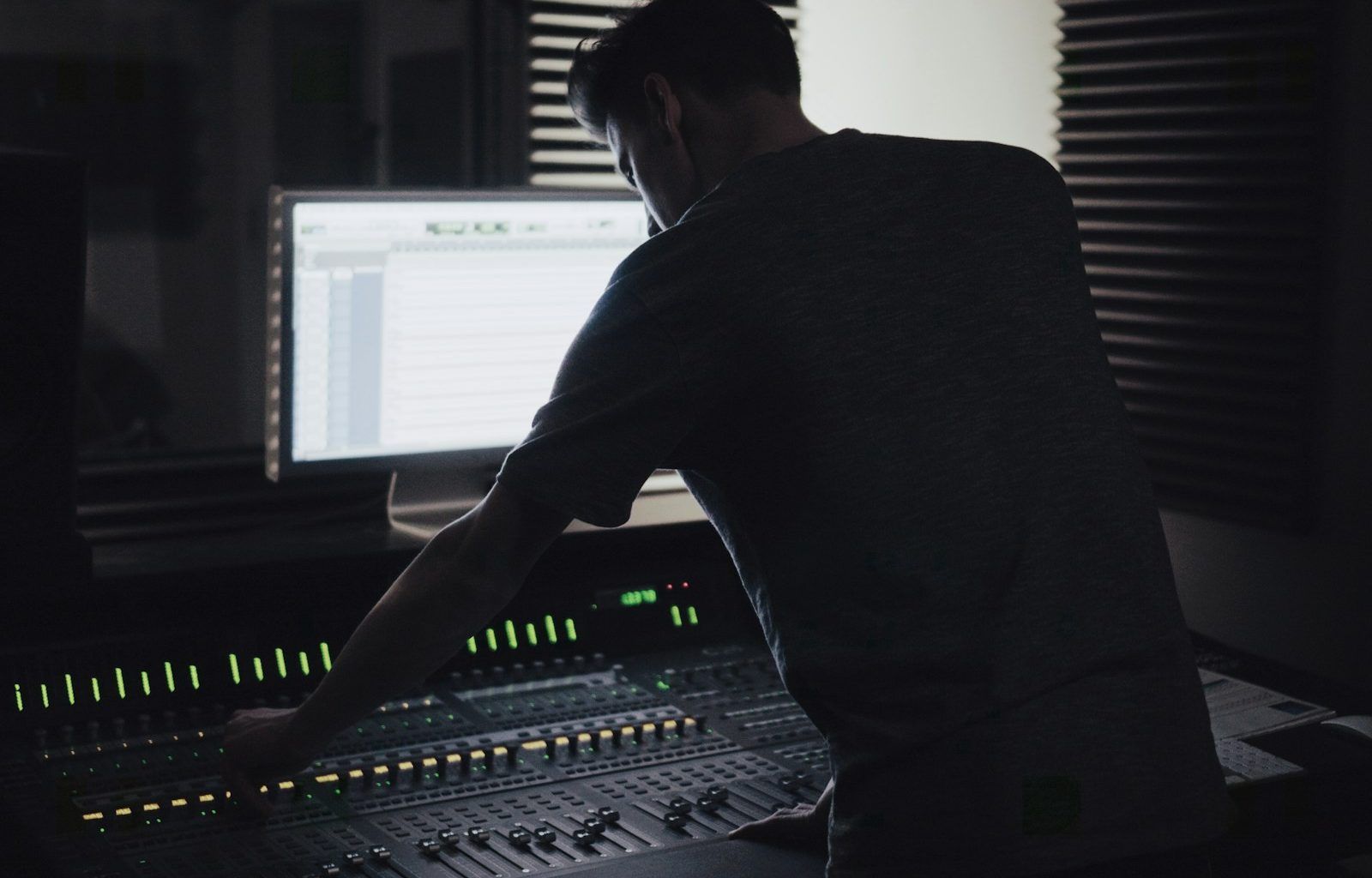When it comes to creating music, there are two essential steps that can make or break the final product: mixing and mastering. If you’re a music producer, sound engineer, or even a curious listener, you’ve probably heard these terms. But what do they really mean? And why are they so important? Let’s break it down together and explore the key differences between mix vs master in music production.
What Is Mixing in Music Production?
Mixing is like cooking a dish with all the raw ingredients. You start with recorded tracks—vocals, instruments, beats, or synths—and work on blending them to create a cohesive sound. This step is all about ensuring that every element of the track finds its perfect place.
A mixing engineer’s goal is to make the music feel balanced. They adjust levels, apply equalization (EQ), add effects like reverb and delay, and sometimes even tweak the timing or pitch of the recordings. Mixing helps to ensure that no instrument overshadows the others and that the vocals shine through where needed.
For example, imagine a song where the bass is too loud, drowning out the vocals. A good mix ensures that the bass and vocals complement each other instead of competing for attention.
The Tools of Mixing
To mix a track properly, engineers use tools like EQ to carve out frequencies, compressors to manage dynamics, and panning to spread sounds across the stereo field. They also use creative effects to add personality to the music.
Mixing is where the magic starts, but remember, it’s not the final step. That’s where mastering comes in.
What Is Mastering in Music Production?
Mastering is the final polish. If mixing is about balancing the individual ingredients, mastering is about perfecting the entire dish before serving it to the world. A mastering engineer takes the final mix and enhances it to ensure it sounds its best across all playback systems.
Think about how music is consumed—on headphones, car speakers, or massive club sound systems. Mastering ensures that your track sounds great, no matter where it’s played.
This process typically involves equalization, compression, and limiting. However, instead of focusing on individual tracks, mastering works on the complete mix. The goal is to create a consistent and professional sound.
Why Mastering Matters
Imagine you have a beautifully mixed song, but when you play it on different devices, it lacks impact on some. That’s where mastering bridges the gap. It standardizes your track’s loudness, tonal balance, and clarity. In short, mastering is what makes your track radio-ready or streaming-service-friendly.
Key Differences Between Mixing and Mastering
Let’s make it super simple:
- Focus Area: Mixing works on individual elements; mastering works on the final mix.
- Goal: Mixing aims for balance and creativity; mastering ensures consistency and polish.
- Tools: Mixing uses track-based adjustments (EQ, reverb, compression); mastering applies global enhancements (limiting, stereo widening, tonal correction).
The Creative and Technical Sides
Mixing is often seen as the more creative step, where you can experiment with effects, dynamics, and textures. On the other hand, mastering is highly technical. It requires a trained ear and precise tools to fine-tune every detail.
Can You Mix and Master Your Own Tracks?
You might wonder, “Do I need a separate engineer for mixing and mastering?” While it’s possible to do both yourself, having separate experts can lead to better results. Mixing and mastering require different skill sets, and a fresh set of ears can catch things you might miss after hours of work.
However, with the rise of affordable tools and software, many independent artists handle both steps themselves. If you choose to do this, make sure to take breaks and approach each stage with a fresh perspective.
Common Challenges in Mixing
Mixing isn’t as easy as it sounds. Some common challenges include:
- Frequency Clashes: When instruments compete for the same frequency range.
- Volume Imbalances: Some tracks overpower others.
- Lack of Depth: The mix feels flat or crowded.
To overcome these challenges, engineers often rely on reference tracks and a clear understanding of the song’s vision.
Common Challenges in Mastering
Mastering can be equally tricky. Some common hurdles include:
- Over-Compression: Squashing the dynamics and making the track feel lifeless.
- Inconsistent Loudness: The track doesn’t match industry standards.
- Overlooking Small Details: Even tiny imperfections can stand out after mastering.
How to Decide if Your Mix Is Ready for Mastering
Before jumping into mastering, ensure your mix is as good as it can be. Ask yourself:
- Can you hear every instrument clearly?
- Does the mix feel balanced on multiple playback devices?
- Is the overall tone aligned with your vision for the song?
If the answer is yes, it’s time for mastering.
The Role of Technology in Mixing and Mastering
In today’s world, technology plays a massive role in both mixing and mastering. Software like Pro Tools, Logic Pro, and Ableton Live are commonly used for mixing. Mastering, on the other hand, often involves tools like iZotope Ozone, FabFilter plugins, or hardware compressors.
Despite these advancements, the human ear remains the most important tool. Mixing and mastering are as much about skill and experience as they are about technology.
Why Mix vs Master Debate Matters
Understanding the difference between mixing and mastering helps you make better decisions for your music. It allows you to prioritize the right steps and allocate your resources effectively. Whether you’re hiring professionals or doing it yourself, knowing these processes is essential for achieving high-quality results.
Conclusion: The Perfect Partnership
Mixing and mastering are two sides of the same coin. One focuses on the details, while the other refines the whole picture. Together, they ensure your music not only sounds great but also resonates with listeners, no matter where or how they’re hearing it.
So, next time someone asks you about mix vs master, you’ll know exactly what to say—and why both are crucial for your music’s success!
For further reading, explore these related articles:
- Exploring XXXTentacion’s Last Album: The Legacy of Bad Vibes Forever
- Climbing the Singers Chart: A Simple Guide for Aspiring Vocalists
For additional resources on music marketing and distribution, visit DMT Records Pvt. Ltd.






